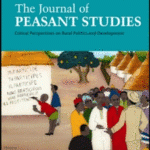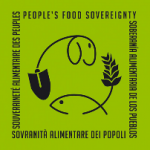Articles in the International Observer Category
Husunzi, International Observer »

The Journal of Peasant Studies (JPS) has published during the past couple of years several cutting-edge articles on (trans)national agrarian movement politics, food sovereignty and La Via Campesina. Several of these articles can be downloaded free of charge from the journal website until 31st March 2011.
Husunzi, International Observer »

Summary of Aufheben’s two-part article “Return of the Crisis,” highlighting the parts about China and asking some questions.
They argue that the financial crisis of 2007-8 “was caused neither by an accident due to misguided policy, nor… an underlying crisis of stagnation of the real accumulation of capital,” but rather “an oversupply of loanable money-capital within the global banking and financial system that has arisen since the late 1990s. This in turn has been the result of developments in the real accumulation of capital – such as the rise of China, the take-off of the ‘new economy,’ and the continued liquidation of the ‘old economy’ – that have been central to the long upturn.”
They tentatively conclude that “the nature and significance of the financial crisis is not that of a decisive turning point leading to an economic downturn or the end of neoliberalism, as many have supposed, but more of a point of inflection pointed to a new phase in the long upturn.” In a footnote they add, “The crisis could be seen as an earthquake caused by the shifting tectonic plates of global capital accumulation as the centre of accumulation gradually shifts away from the USA and the old advanced capitalist economies towards China and Asia”…
Chinese Revolutionary History, Contemporary China, International Observer »

For much of the working class and oppressed communities in India, the Chinese “model” is not its current capitalist market system, but the socialist revolution that preceded it under the leadership of Mao. In both nations the desperation of hundreds of millions in the face of “globalization” is growing, now heightened by the worldwide capitalist crisis. Though each government has shown an ability to buffer some of the worst effects of this collapse, and taken recent measures to ameliorate the burdens on the working classes, in the longer run they will not be able to escape the growing contradictions of world capitalism. Already, in both China and India, protests against ever widening polarization, impoverishment, corruption, land thievery and ecological devastation are growing in number, size and violence. For the Chinese, who had a revolution and then turned back to the capitalist road, it would take a major reversal to once again move toward socialism. India never had a similar revolutionary socialist transformation, but the forces to carry it out are stronger now than ever. The Indian and Chinese working classes and leftist forces today increasingly face parallel conditions under global capitalism led by an imperial United States. Though they have little contact at present, the future may bring a new unity, as the contradictions of the world capitalist system deepen and drive them more closely together.
Husunzi, International Observer, Rural China, 中文资料 »

“Peasants vs. Global Capitalism: On ‘The People’s Forum for Food Sovereignty’” - Chinese article about the forum held in Rome in November 2009, by one of the two Chinese participants. One of the first Chinese articles to introduce the concept of “food sovereignty,” relating the struggle of food producers and consumers in other countries to China’s situation.

